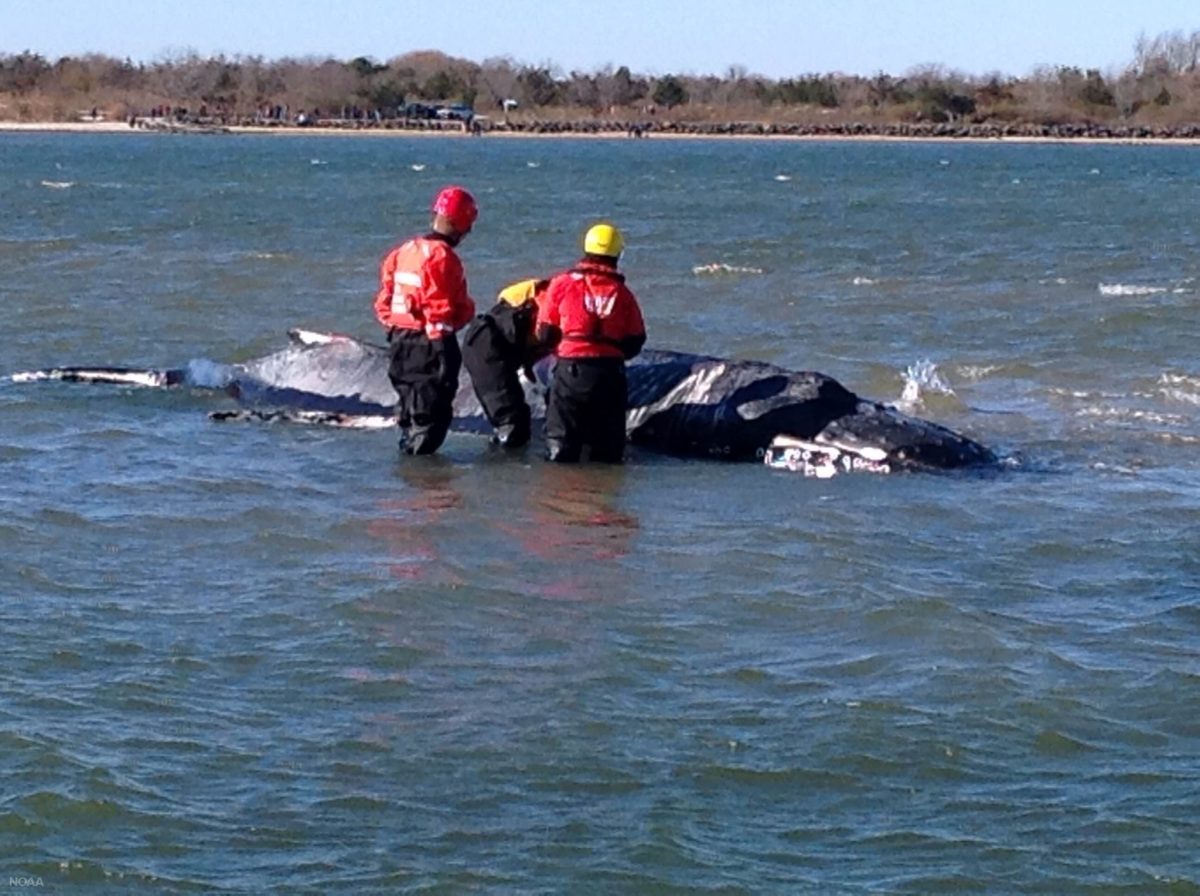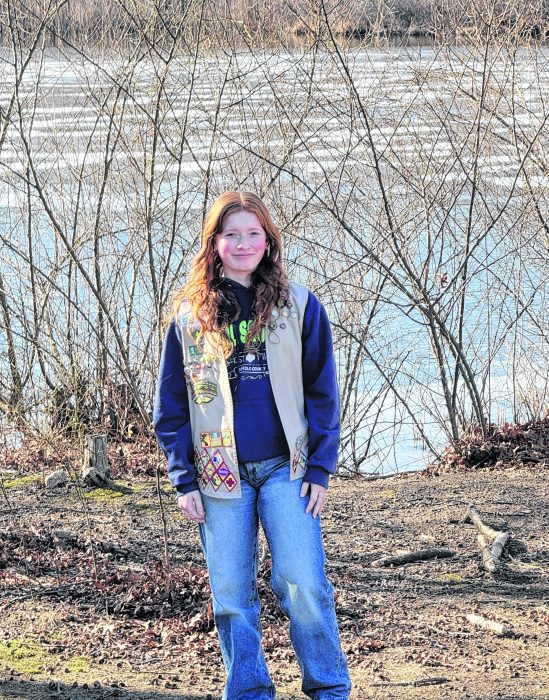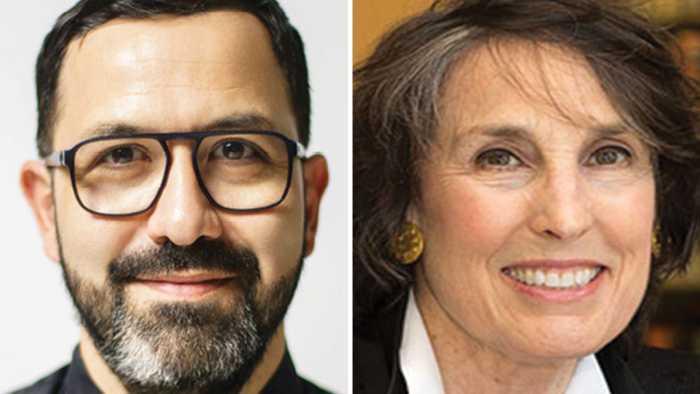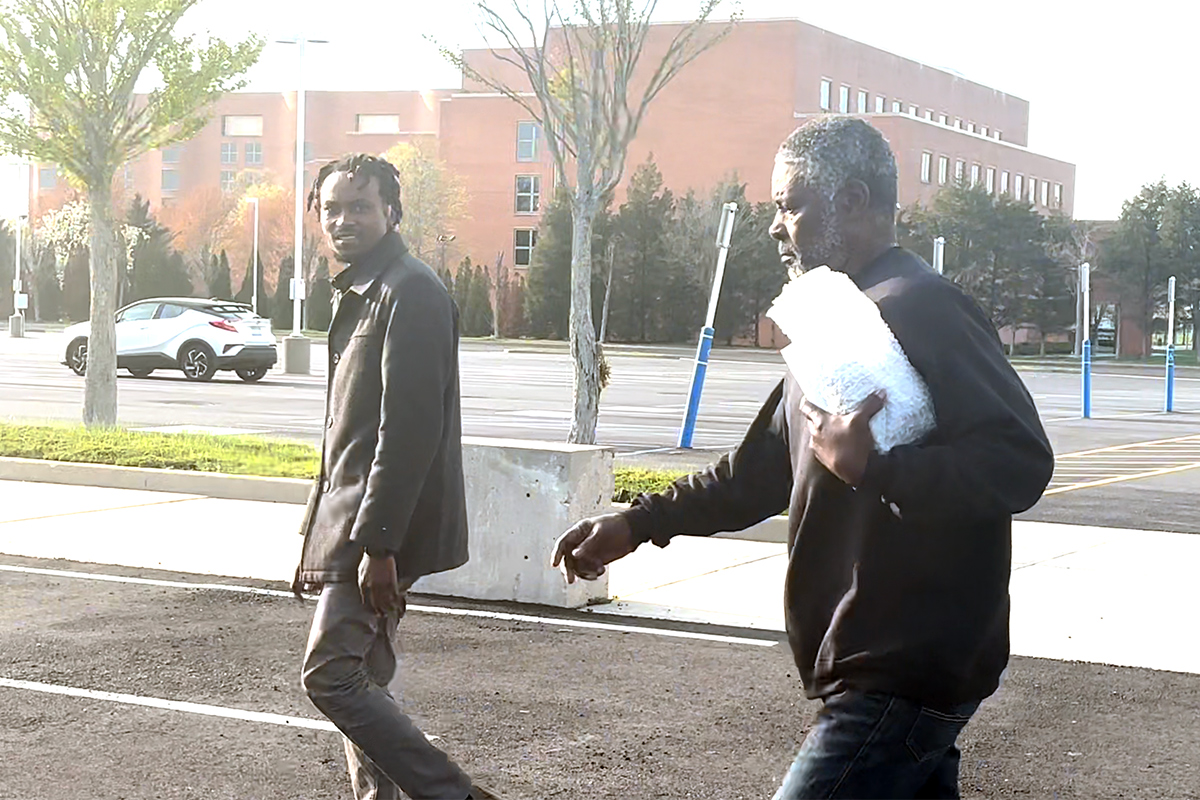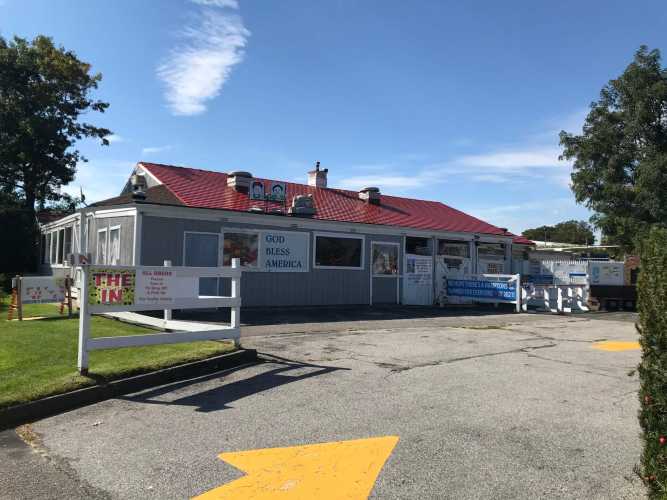Federal officials conceded during a recent community meeting in Farmingville that they could have done a better job responding to a humpback whale that was euthanized after getting stranded in Moriches Bay last fall.
Dozens of people packed Brookhaven Town Hall on Tuesday to hear National Oceanic And Atmospheric Administration officials and a host of marine biologists give a presentation on lessons learned from the incident. Officials announced that some changes have already been made in preparing for the next whale stranding, while other plans are still being ironed out.
“Although we followed protocols that had been developed over decades of stranding responses around the world, I believe NOAA Fisheries and our stranding network partners, could and should have done more to communicate with onlookers,” said John Bullard, the regional administrator for the NOAA Fisheries Greater Atlantic Region. “Frankly, we were unprepared for the unprecedented outpouring of resources from you all, even from your governor… All of you greatly exceeded past community responses to any individual event, so unfortunately, we were not ready to receive your help.”
The meeting was in response to public outrage sparked by marine biologists’ euthanizing the 29-foot long, 15-to-18-ton female whale when experts determined it was in too poor health to be saved four days after it got stranded on a sand bar in November. Members of the public named the whale “Morey” after the bay where she landed.
Among the changes sparked by the whale’s demise, LI-based nonprofits dedicated to marine wildlife will now split the task of handling local incidents. The nonprofit Riverhead Foundation for Marine Research and Preservation will continue responding to reports of live stranded dolphins, seals and sea turtles from New York Harbor to Montauk as it has for the past two decades, NOAA said. And the newly formed nonprofit Atlantic Marine Conservation Society (AMCS), based in Hampton Bays, was authorized by NOAA to respond to any live large whale strandings as well as to collect samples from dead whales found on New York beaches, NOAA added.




